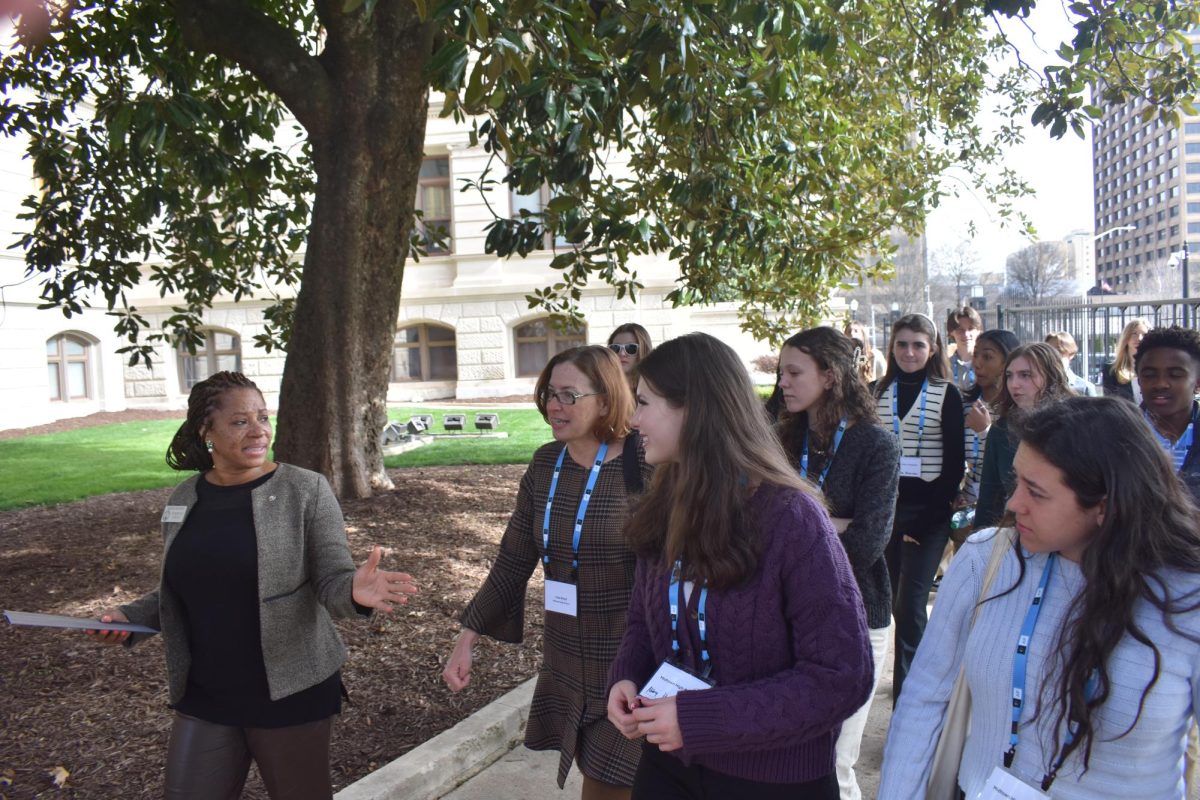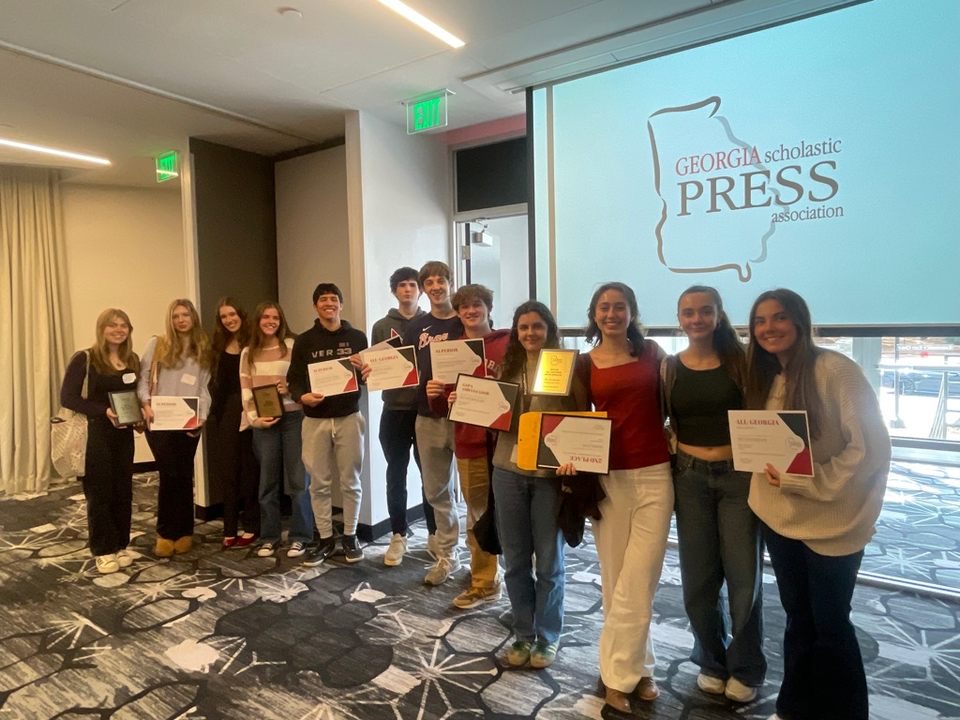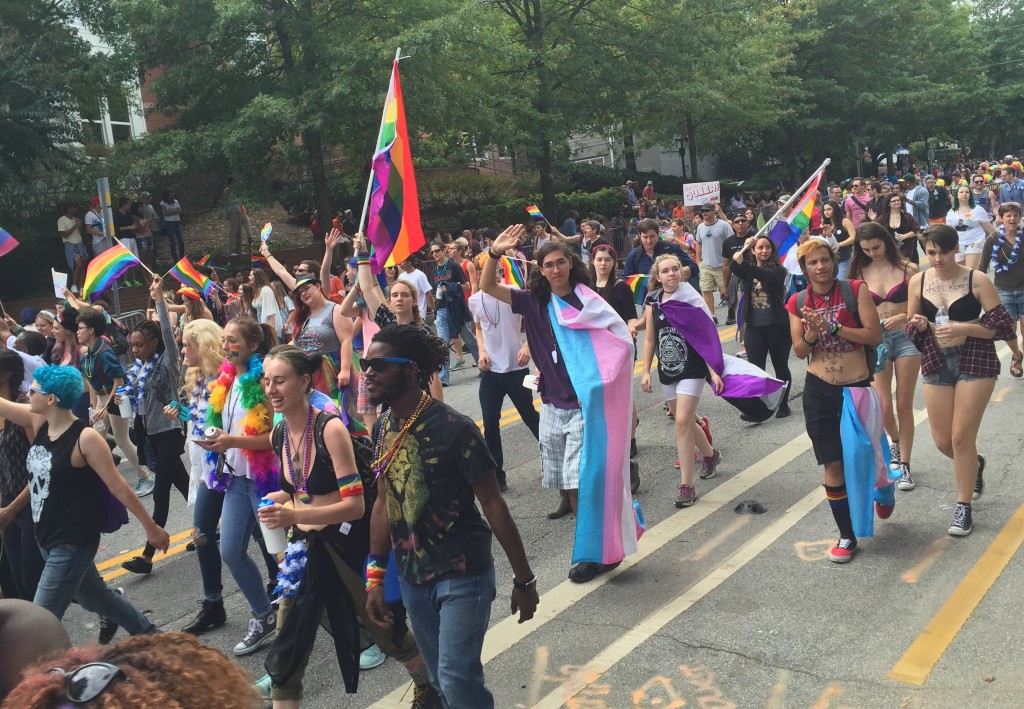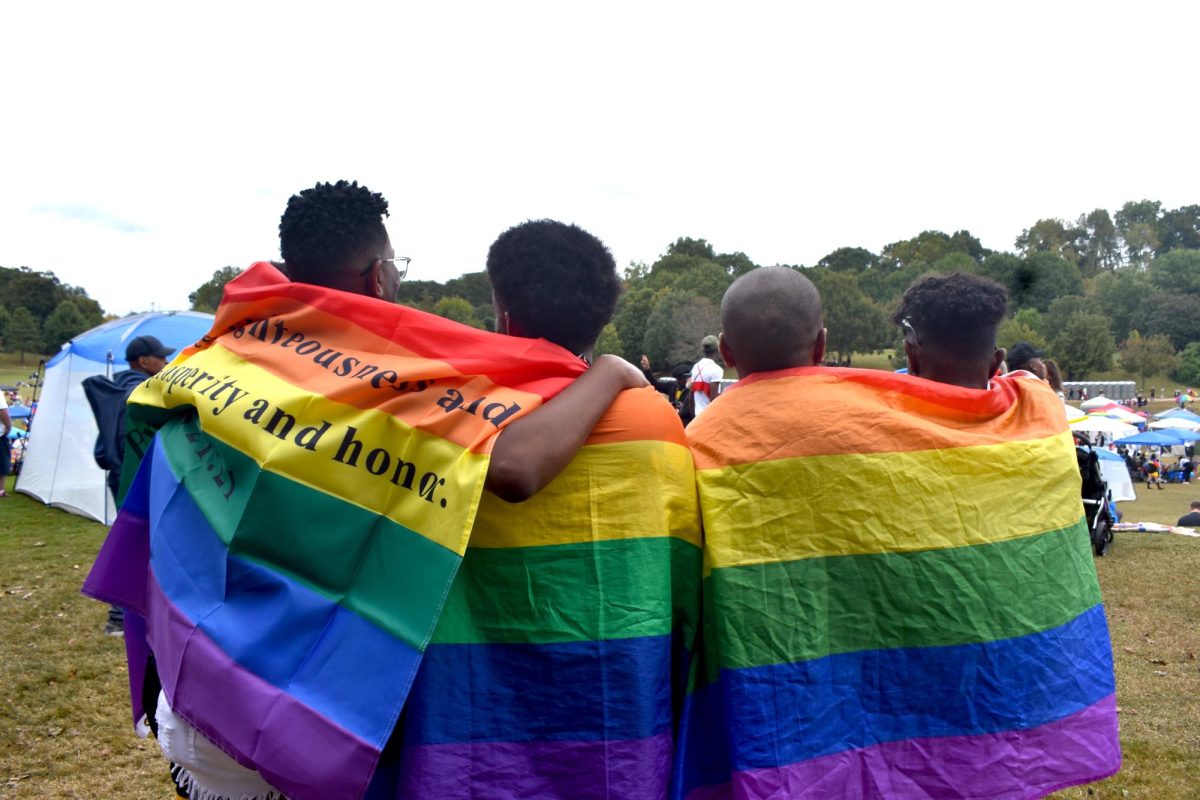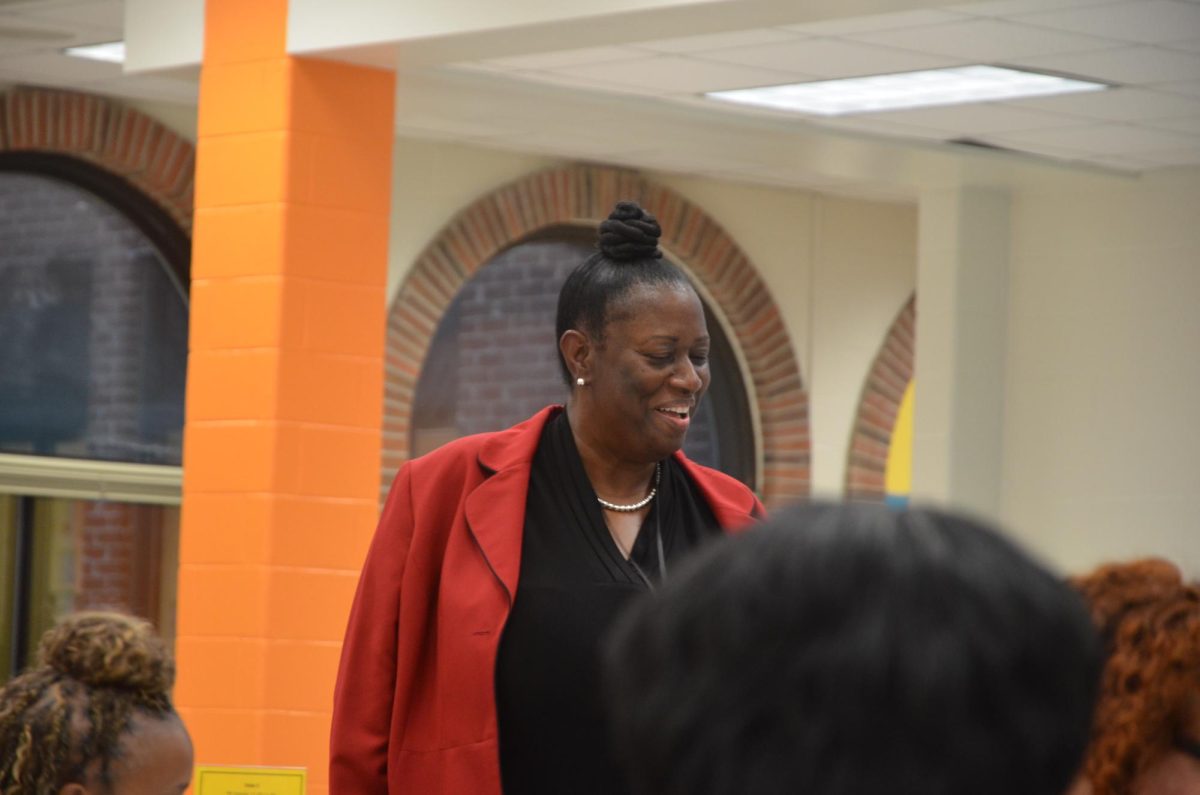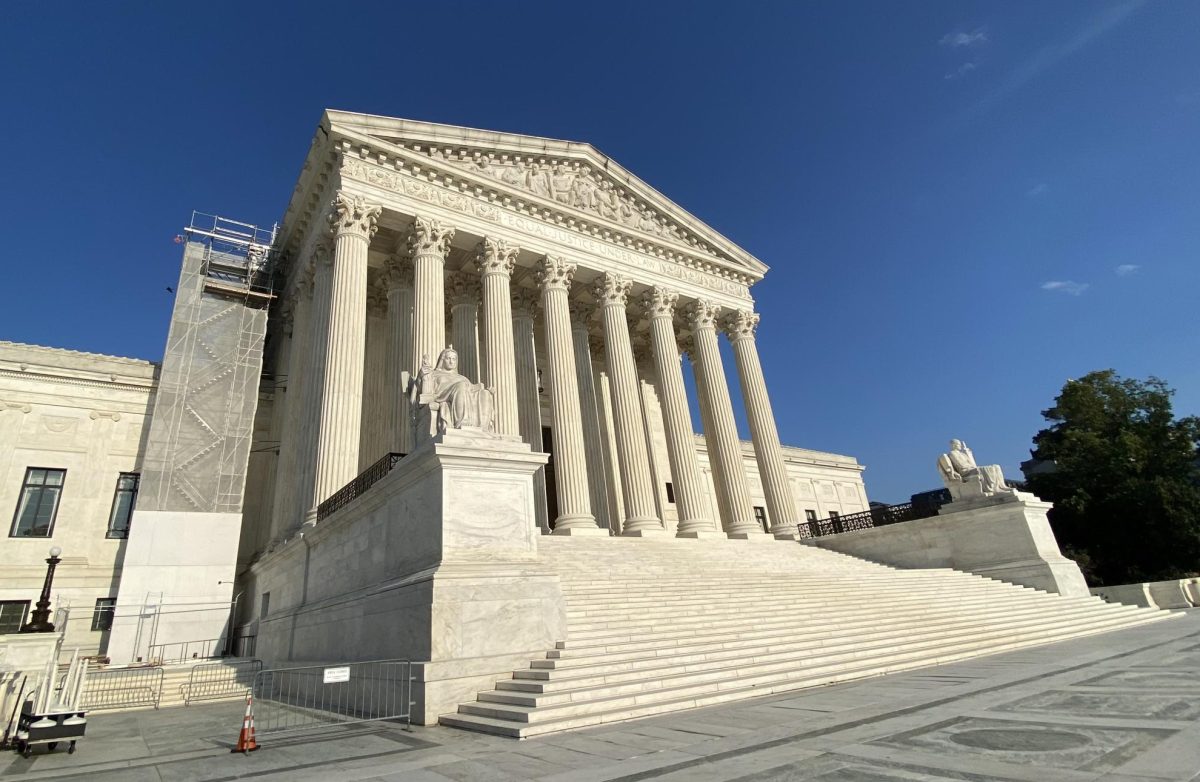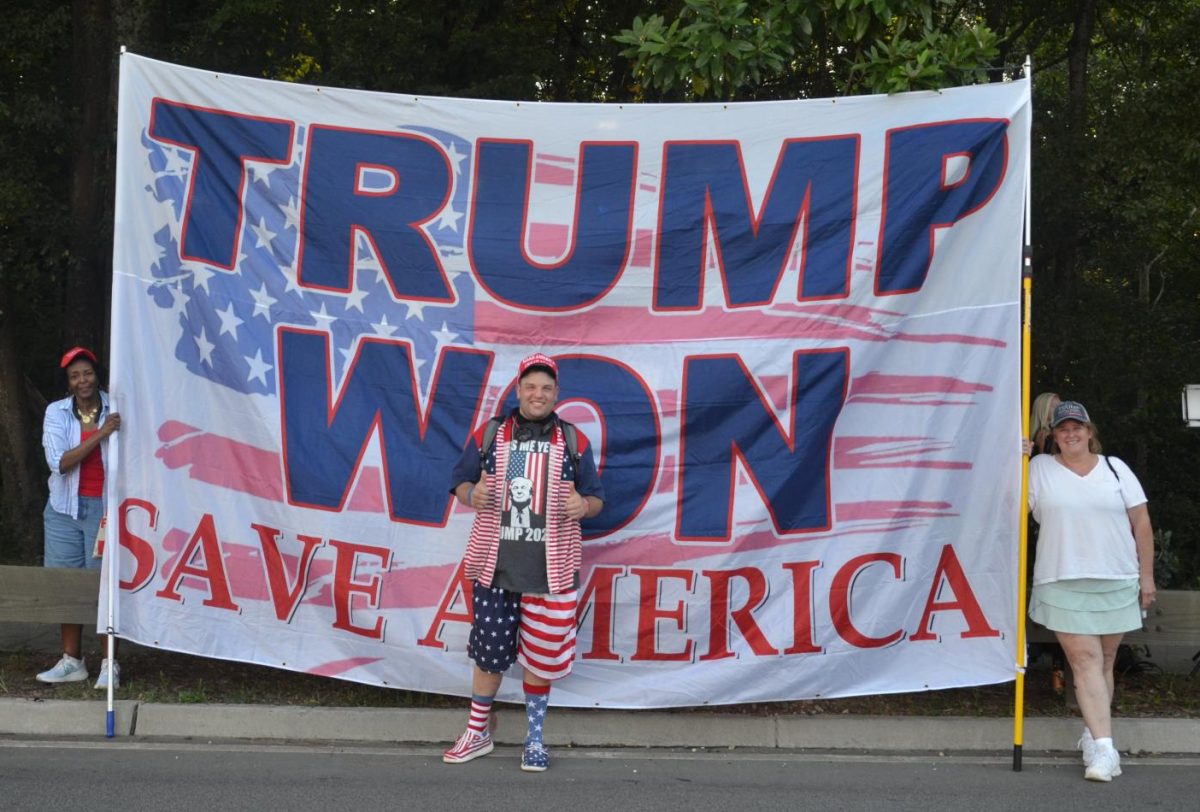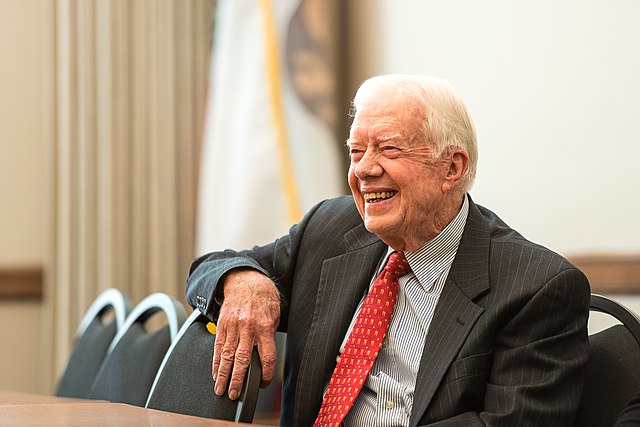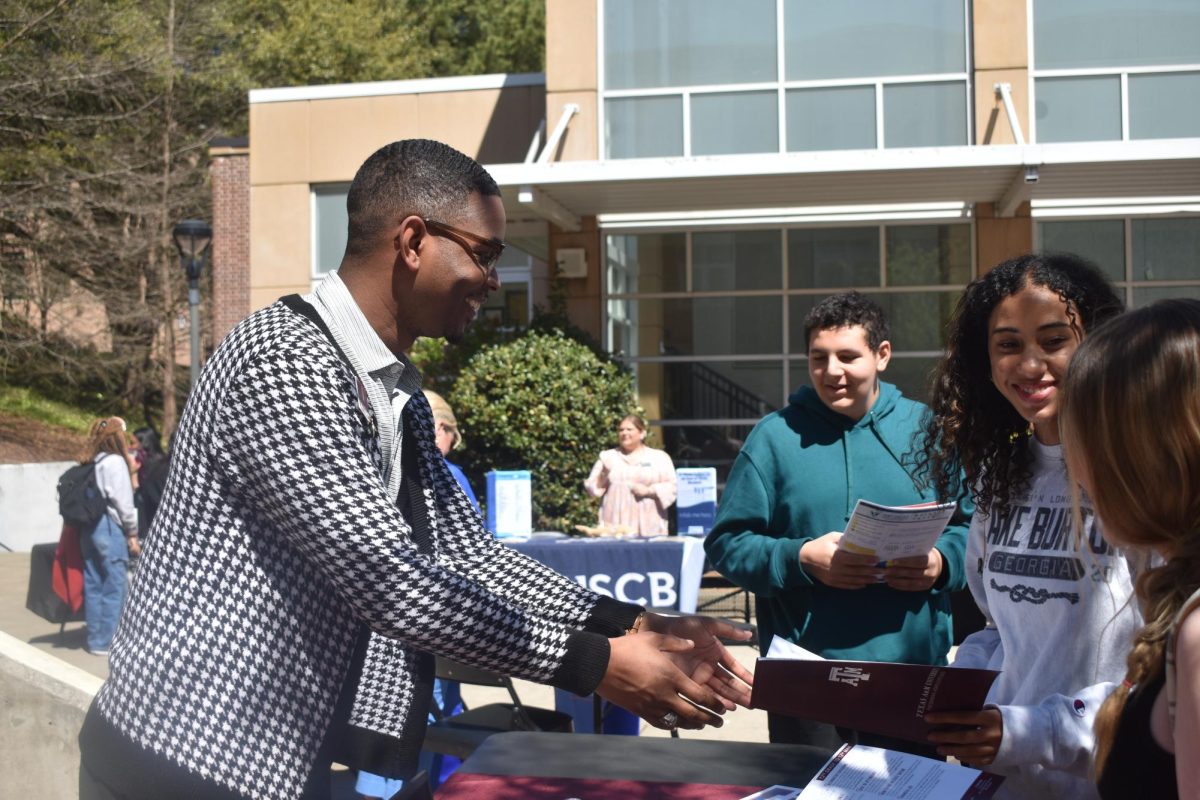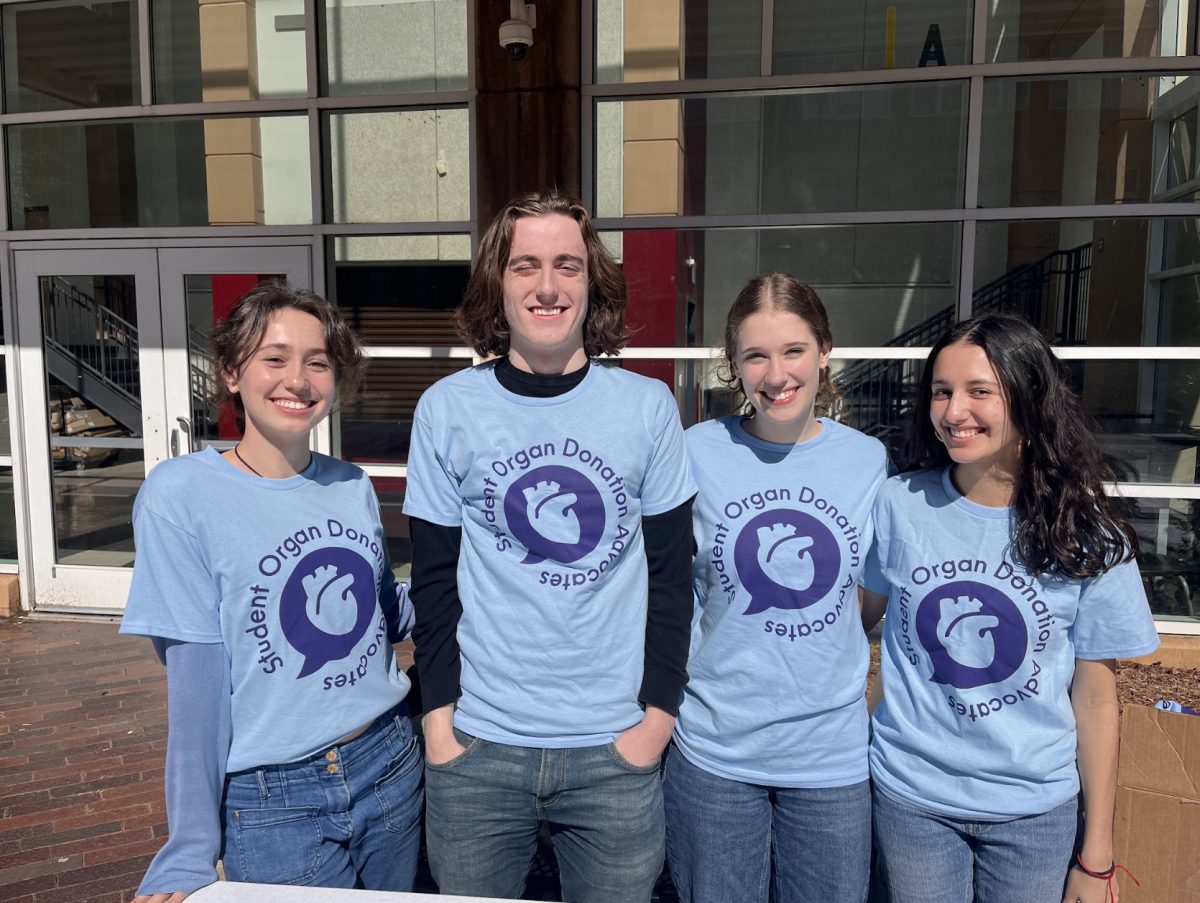By Reilly Blum and Isabel Olson

Forty-five years have passed since Atlanta Pride’s insurrection. On June 28, 1970 — the one-year anniversary of New York City’s Stonewall Riots — Atlanta’s now famous Gay Pride festival was nonexistent, but activists still gathered in Piedmont Park to pass out information about their cause.
One year later, the Georgia Gay Liberation Front (GGLF) organized Atlanta’s first Gay Pride March, and Atlanta’s Gay Pride festival was born.
Jamie Ferguson, newly appointed executive director of Atlanta Pride, first attended the festival in 2001 when she was 19 years old.
“I was from a small town and had never seen so many LGBTQ people in one place,” Ferguson said. “It was an eye-opening experience for me. I wanted to be a part of the community. I started volunteering the next year and never stopped.”
Today the pride festival, which occurs yearly across the street from Grady, attracts thousands.
At a Crossroads
Travel a quarter mile up 10th Street from Grady, and you’ll hit Piedmont Avenue, where the crosswalks once shined rainbow-bright.
Robert Sepulveda, Jr., a local interior designer, kickstarted a campaign to raise money to paint the crosswalks in August. In just two months, Sepulveda raised over $40,000, more than double his original goal. He began the project with the expectation that the crosswalks would be a permanent addition to the Midtown community, but received an email from the city on Sept. 15 stipulating that the crosswalks would be temporary.
In response, Sepulveda created a petition to persuade Mayor Kasim Reed to extend the life of the crosswalks indefinitely, mimicking cities such as Seattle and Key West. Despite this setback, Sepulveda saw his fundraising come to fruition on the night of Oct. 8, when crews began painting the crosswalks for the pride festival on Oct. 9. Some Atlantans, however, express concern that his initiative is mis-directed.
Julian Mudongo, a writer for queer culture magazine WUSSY, says the funds for the crosswalks could have been better focused to combat more serious issues facing the LGBTQ community.
“It’s just an expensive vanity project,” Mudongo said. “If you’re a homeless gay teen, and you see a rainbow-painted crosswalk, that’s about as useful as if you need a blood transfusion and see a red cross painted somewhere. It’s just a symbol that doesn’t do anything.”
While the temporary installation cost about $5000 to $7000, a permanent one would cost $20,000. Though the city has agreed to allow temporary rainbow crosswalks in upcoming years’ pride festivals, Sepulveda continues his campaign for permanent rainbow crosswalks.

A breakdown of expenses on the project’s website shows that his organization has around $17,000 remaining after fees necessary to make the organization a certified nonprofit. As of Oct. 17, the organization has returned a total of $7,500 to donors.
Marching Forward
In a show of support for No Place for Hate, a foundation that is working to decrease anti-gay prejudice in intown schools, Atlanta Public Schools board member Leslie Grant marched in this year’s Pride parade on Oct. 9. Grant asked a realtor friend to sponsor a place in the parade for APS faculty and students.
“It’s 2015. It’s time for people to be willing to be okay with who they are,” Grant said. “No one should have to tolerate hate. It’s just not okay for people to hate people because of who they are anymore.”
Openly-gay Grady social studies teacher and founder of Inman’s Gay-Straight Alliance (GSA), Chris Wharton, said that Grady is more supportive of diverse identities than his high school was.
“There are a lot of supportive kids here,” Wharton said. “There are even more supportive staff, but there’s also a lot of homophobia. You still hear the gay slurs in the hallway. I’ve known teachers who have been called gay slurs. It’s definitely not universally accepting. … [Some kids] come from communities where the worst possible thing for them to be is gay.”
According to Wharton the LGBTQ community itself is not always universally accepting.
“I’ve met gay people who can’t accept transgender or bisexual people,” Wharton said. “They act like you have to pick one, gay or lesbian, which is it? It’s surprising how much people care about who other people love.”
Mudongo said that this split is in part due to generational differences — as a general rule, he believes that millennials are often “more tuned-in to transgender issues and bisexual awareness” than their elders.
“There’s this mindset that is more prevalent in the older generation that’s sort of ‘we’re gay, we’re fighting for gay issues, and that’s really all we’re interested in’ to the exclusion of the L, the B and the G in LGBT,” Mudongo said.
He believes, however, that facing discrimination — whether as a member of the LGBT community or not — can often lead people to be more aware of other social issues.
“Experiencing the world as a gay person, I have become more capable of sympathizing with people who were going through some of the same things as me,” Mudongo said.
His experiences, however, are not universal.
“I thought that was sort of across the board, that by being an outcast in this way, gay people were more tuned in to issues like racial inequality, or wealth inequality, and that just hasn’t been the case,” Mudongo said. “There are still gay men out there who say they don’t want to date a person of color. … There’s this issue where they don’t want to be discriminated against, but then they turn around and discriminate against people on a whole number of factors. I think we can do better than that.”
On June 26, 2003, the U. S. Supreme Court ruled against sodomy laws in Texas and 14 other states. Exactly 12 years later, the court legalized same-sex marriage in all states. This year’s marriage equality ruling marked an important milestone for the LGBTQ community, but Ferguson said that the fight is far from over.
“Unfortunately, many people in our community — especially people of color and trans people — still lack a lot of basic protections,” Ferguson said. “We have a lot to celebrate, but we also still have a lot of work left to do.”
Mudongo said that the marriage equality ruling has done little to combat preconceived prejudices.

“A lot of millennial LGBT people are getting involved in these other issues because they’re realizing that it’s not just about your sexuality or gender identity,” Mudongo said. “It really does come down to everything: to race, to wealth, to politics, to your access to resources. … You can’t really accomplish one thing unless you’re trying to accomplish everything. They all go hand in hand. The next part of the fight is much more complicated and multifaceted.”
A study by the Williams Institute, a think tank of the UCLA law school, found as many as 40 percent of homeless youths identify as LGBTQ. The Williams Institute also calculated, however, that people who identify as LGBTQ make up a far smaller proportion of the nation’s population. The percentage varies from state to state — but in the vast majority, LGBTQ residents constitute between two and four percent of the population.
This imbalance oftentimes stems from familial rejection and ostracization.
Atlanta nonprofit Lost-n-Found Youth seeks to resolve this issue by working to transition homeless LGBTQ young people into permanent housing and provide them with healthcare, GED training, clothing and other services to help them become independent.
Robbie Medwed, assistant director of Sojourn, a Southern Jewish Research Network that focuses on education advocacy and suicide prevention with gender and sexual diversity, believes that as more LGBTQ members accept and represent their sexuality, people will become more accepting of and comfortable with people different than themselves.
“What I’d really love to see is a world where nobody has to come out,” Medwed said. “When the options are already there on the table, nobody is assumed to be anything.”
Medwed believes, however, that coming out is currently one of the most crucial steps in LGBT acceptance.
“If someone has the safety and privilege to be able to come out, not everyone has that privilege,” Medwed said. “We live in a world where you are assumed to be straight until proven otherwise, and we assume that from before a kid is even born. We already assume so many things about them that people have to come out. As soon as we stop assuming things, that’s when things will really change.”
Though she acknowledged that the LGBT community still has many barriers to overcome, Ferguson said that she has witnessed change since she began volunteering with Atlanta Pride in 2001.
“This year, I had my partner, my child, my parents and [several family members] working at the festival,” Ferguson said. “As a teenager, I never imagined a day when my parents would be volunteering with Pride. “Having all of them there was a testament to how much things have improved in my life as I’ve lived more authentically.”
With gay marriage laws being instituted and more people speaking up and coming out, Atlanta has been bounding toward equality, but universal acceptance is not present yet.
“The tide of history is going toward acceptance,” Wharton said. “We are embracing the LGBT people as an everyday part of society so that the people that are making homophobic remarks and are against gay rights, are going to, with time, look the way we look at the people that protested integration in the 60’s, people that held up signs protesting Brown vs. Board of Education, or said ‘I won’t send my kid to school with a black kid.’ I think in time they will be viewed similarly to where it just becomes an ‘of course that’s unacceptable.’”




